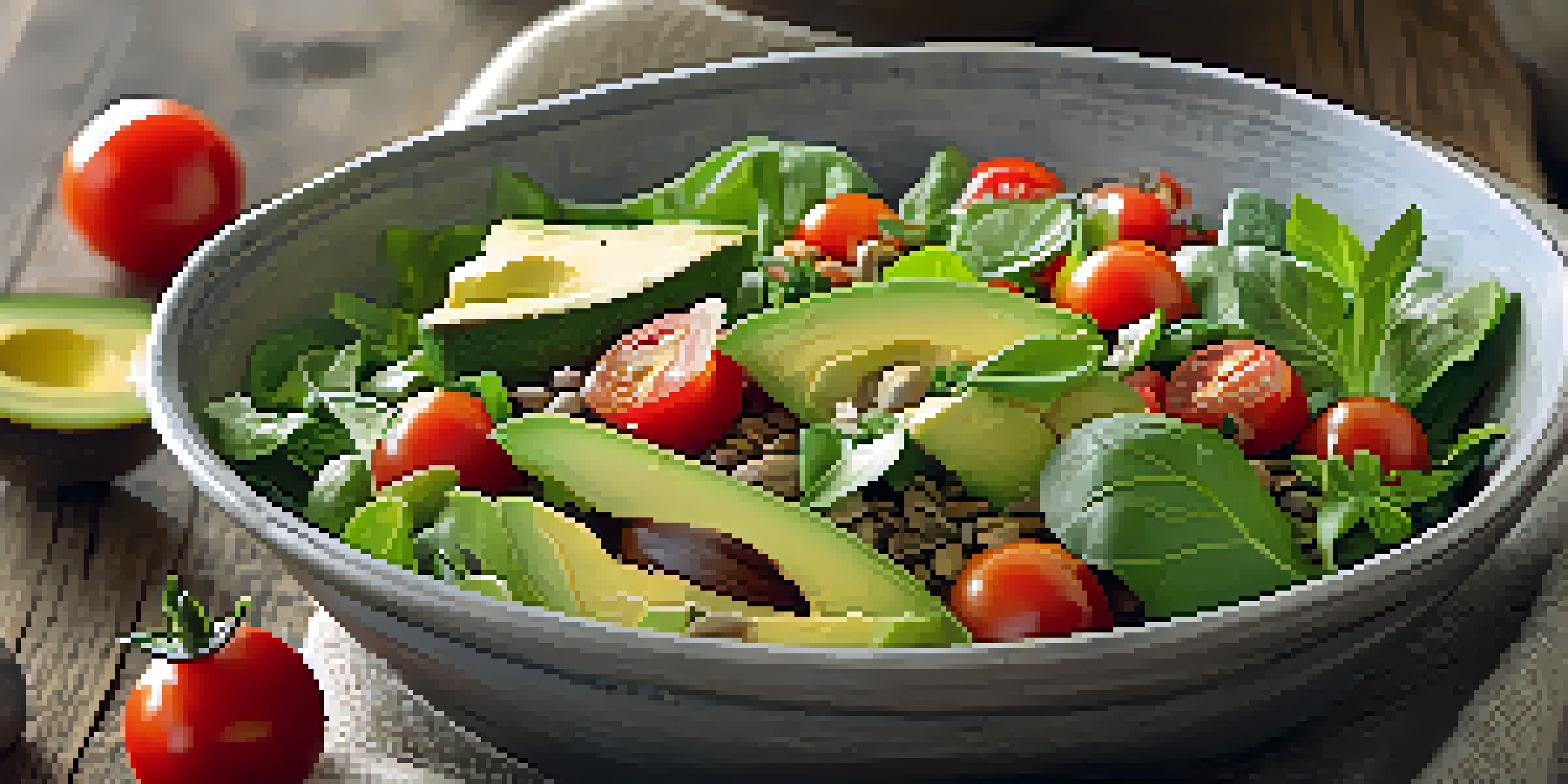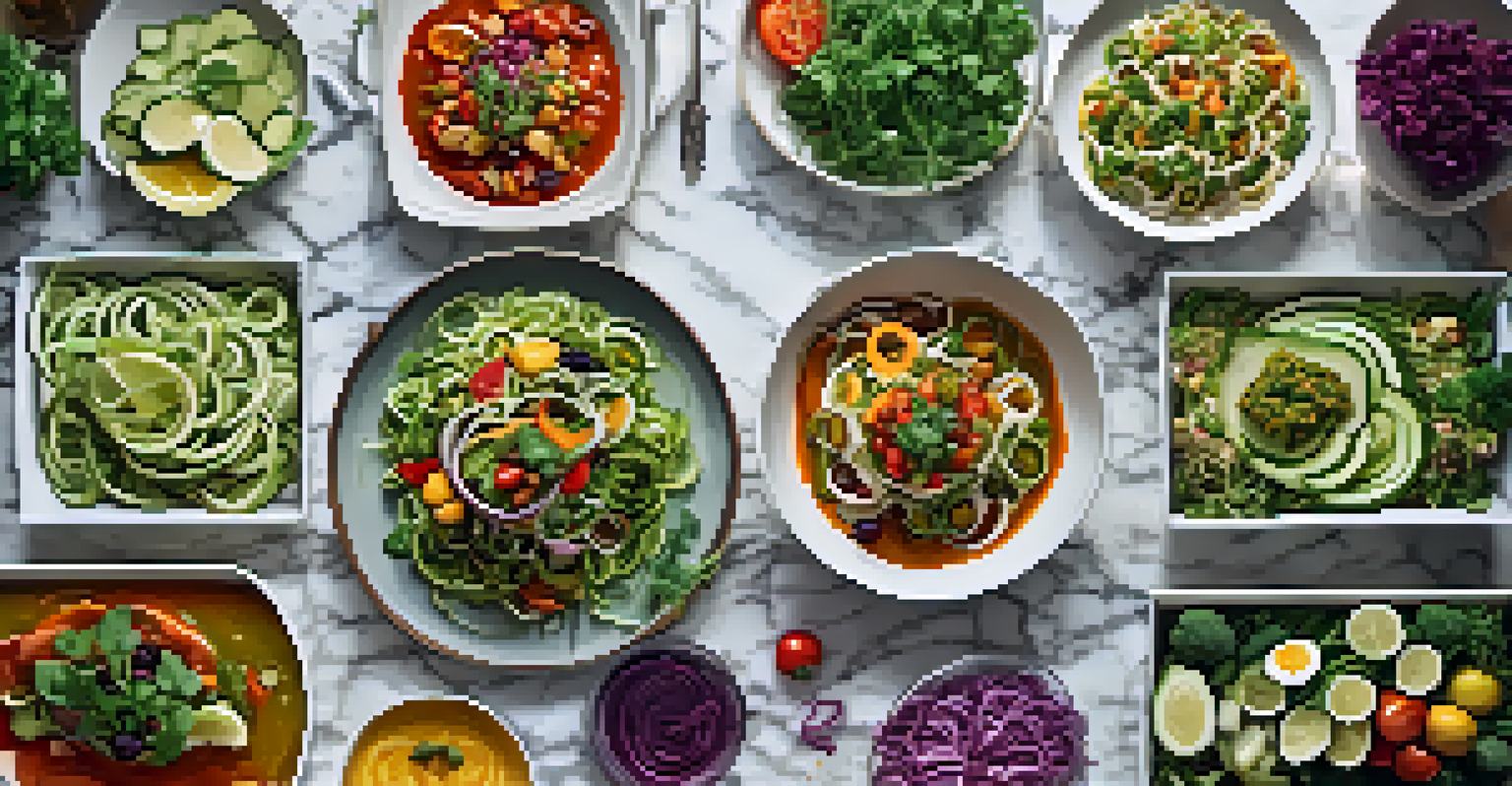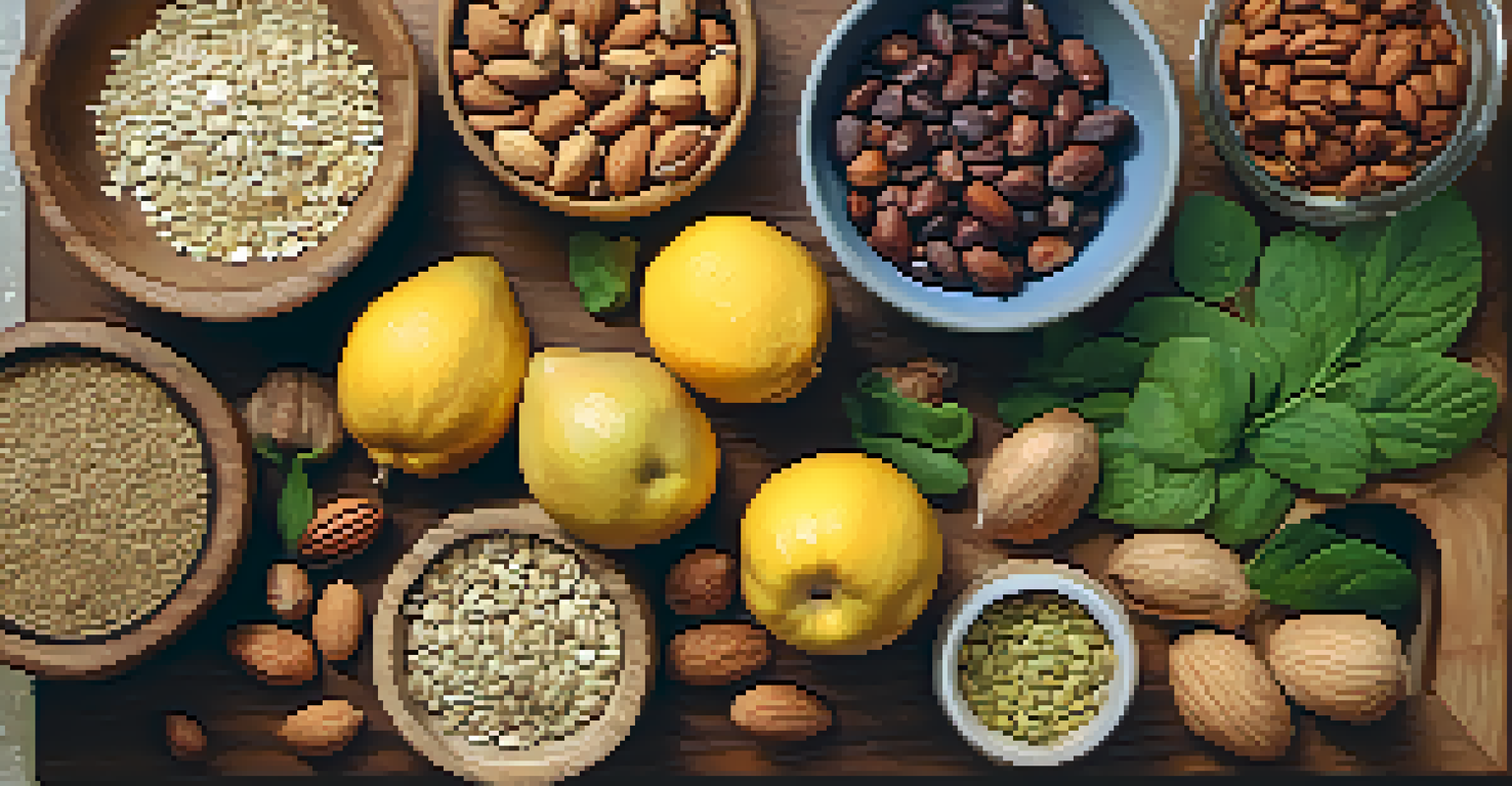Raw Veganism: Cultural Roots and Global Practices Explored

Understanding Raw Veganism: A Brief Overview
Raw veganism combines two dietary philosophies: raw foodism and veganism. Essentially, it involves consuming only plant-based foods that are uncooked and unprocessed. This means fruits, vegetables, nuts, seeds, and sprouted grains are staples, while animal products are completely avoided.
Let food be thy medicine and medicine be thy food.
The allure of this lifestyle lies in its perceived health benefits, including increased energy, improved digestion, and better skin. Many raw vegans argue that cooking food can destroy essential nutrients and enzymes, making raw options healthier overall. This approach promotes a diet rich in vitamins, minerals, and antioxidants.
However, raw veganism isn't just a diet; it's a lifestyle choice that often reflects broader ethical and environmental concerns. Adopting a raw vegan diet can come with challenges, such as ensuring adequate protein intake and finding balance in nutrition. Yet, many believe the benefits far outweigh the obstacles.
Cultural Roots: Where Raw Veganism Began
The origins of raw veganism can be traced back to various cultural practices around the world. Ancient civilizations, such as those in India and China, often embraced raw foods for their health benefits and spiritual significance. These early practices laid the foundation for modern raw veganism.

In the 19th century, the raw food movement gained momentum in Europe and America, driven by health reformers who believed in the healing properties of uncooked foods. Prominent figures like Sylvester Graham and John Harvey Kellogg advocated for a plant-based diet, emphasizing the importance of whole, unprocessed foods.
Raw Veganism Combines Two Lifestyles
Raw veganism merges raw foodism and veganism, emphasizing uncooked, unprocessed plant-based foods.
Today, many cultures continue to celebrate raw food traditions, showcasing a rich tapestry of culinary practices. From the vibrant salads of Mediterranean cuisine to the fresh sushi rolls of Japan, these dishes highlight the diversity and deliciousness of raw ingredients, reflecting the cultural roots of raw veganism.
Global Practices: Raw Veganism Around the World
Raw veganism has found followers in various corners of the globe, each adapting the concept to their local ingredients and traditions. For instance, in Mexico, raw vegan cuisine often features fresh avocados, tomatoes, and herbs, showcasing the country's rich agricultural bounty. Dishes like zoodles (zucchini noodles) with salsa verde exemplify this flavorful approach.
The greatest wealth is health.
In contrast, Scandinavian countries have embraced raw food practices through the concept of 'Nordic raw.' Here, foraged foods, root vegetables, and fermented items take center stage, creating a unique blend of flavors and textures. The emphasis on seasonal and local produce resonates with the region's sustainability efforts.
Across Asia, raw veganism also incorporates traditional elements, such as in Thai cuisine, where fresh salads and creative dips highlight bold flavors. These global variations not only make raw veganism exciting but also demonstrate the adaptability of this lifestyle in different cultural contexts.
Health Benefits: Why People Choose Raw Veganism
Many individuals are drawn to raw veganism for its purported health benefits. The diet is often associated with weight loss, improved digestion, and enhanced energy levels. By consuming a wide variety of raw fruits and vegetables, followers are likely to increase their intake of essential nutrients and antioxidants.
Moreover, the raw vegan lifestyle encourages mindfulness regarding food choices. Preparing meals from whole, unprocessed ingredients often leads to a greater appreciation for food and its origins. This shift in mindset can promote healthier eating habits and a more balanced lifestyle.
Health Benefits and Nutritional Care
Followers of raw veganism often experience health benefits but must carefully plan their diets to ensure adequate nutrition.
However, it's crucial to approach raw veganism with caution, as it can be challenging to obtain all necessary nutrients. A well-planned diet is essential to ensure adequate protein, calcium, and vitamin B12 intake. Consulting with a healthcare professional can provide guidance and support for those considering this lifestyle.
Challenges of Raw Veganism: Navigating Nutritional Needs
While raw veganism offers numerous benefits, it also presents unique challenges. One of the most significant hurdles is ensuring a balanced intake of nutrients, particularly protein and vitamins that are commonly found in animal products. It requires careful planning and creativity in meal preparation.
For instance, raw vegans often rely on nuts, seeds, and legumes for protein, but these foods can also be calorie-dense. It's essential to balance these with lower-calorie options like fruits and vegetables to maintain a healthy weight. This balancing act can be tricky, especially for beginners.
Additionally, social situations can pose challenges for those on a raw vegan diet. Dining out or attending gatherings may lead to limited food options, which can be frustrating. However, with some preparation and communication, raw vegans can find ways to enjoy meals with others while staying true to their dietary choices.
Environmental Impact: The Eco-Friendly Side of Raw Veganism
Many raw vegans are motivated by environmental concerns, believing that a plant-based lifestyle can significantly reduce their ecological footprint. Animal agriculture is a leading contributor to greenhouse gas emissions, deforestation, and water pollution, so choosing raw veganism can be seen as a step towards sustainability.
By focusing on local, seasonal produce, raw vegans often support sustainable farming practices and reduce the need for transportation, further decreasing their environmental impact. This alignment with eco-friendly values makes raw veganism appealing to those passionate about protecting the planet.
Environmental Sustainability Focus
Many raw vegans choose this lifestyle to reduce their ecological footprint and support sustainable farming practices.
Moreover, many raw vegan recipes highlight ingredients that require minimal processing and packaging, contributing to less waste. This conscious effort to consume responsibly not only benefits the environment but also fosters a deeper connection to food and its sources.
The Future of Raw Veganism: Trends and Innovations
As more people become aware of health and environmental issues, the popularity of raw veganism continues to grow. Innovations in food technology, such as dehydrators and spiralizers, have made it easier for individuals to create delicious raw meals at home. These tools allow for creative culinary expressions that can satisfy diverse palates.
Furthermore, the rise of social media has played a significant role in promoting raw veganism. Influencers and food bloggers showcase vibrant, appealing dishes that inspire others to explore this lifestyle. This visual appeal can attract newcomers and foster a sense of community among those who embrace raw vegan principles.

Looking forward, raw veganism may evolve to incorporate more diverse global influences, blending traditional practices with modern tastes. As people continue to seek healthier, more sustainable food options, raw veganism stands poised to thrive, offering a delicious and ethical way to nourish both the body and the planet.